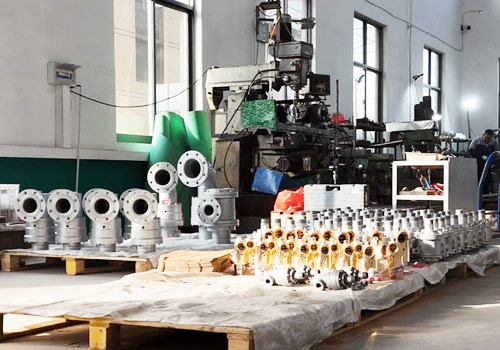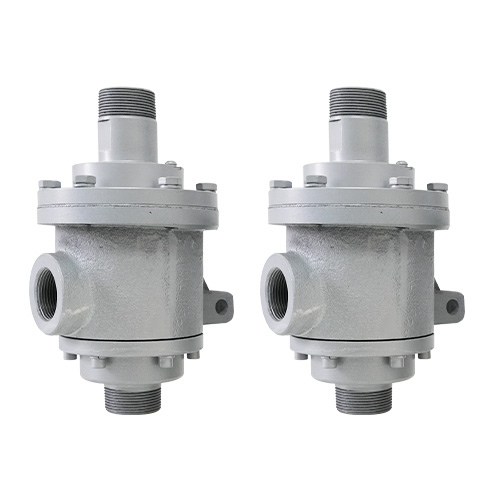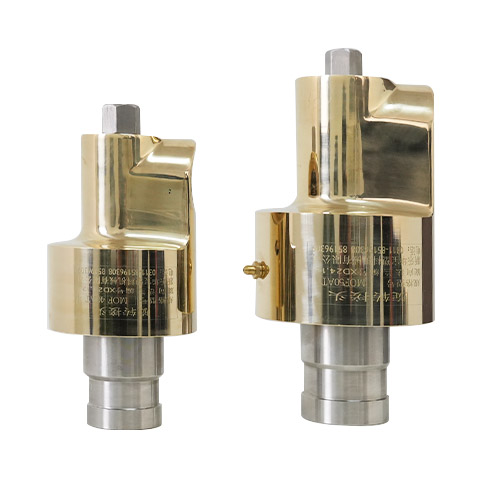Welcome to My Blog!
Before we dive into the content, I’d love for you to join me on my social media platforms where I share more insights, engage with the community, and post updates. Here’s how you can connect with me:
Facebook:https://www.facebook.com/profile.php?id=61575858997962
Now, let’s get started on our journey together. I hope you find the content here insightful, engaging, and valuable.
Table of Contents
Introduction

Ever wondered how your machinery seamlessly transfers fluids like water, air, or hydraulic oil while spinning at high speeds? The answer lies in rotary unions, the unsung heroes of fluid transfer in rotating systems.As a leading innovator, we specialize in crafting high-quality rotary joint, metal hoses, and other advanced sealing solutions, all backed by technical patents. Our products are engineered for various industries, including manufacturing, aerospace, and energy, designed to significantly boost operational efficiency and reliability.
In this guide, we’ll unpack everything you need to know about rotary unions—what they are, how they work, and why they’re critical for your projects. Let’s get started!
What Is a Rotary Union and How Does It Work?
A rotary union, also known as a rotary joint or swivel, is a precision-engineered device that transfers fluids or gases from a stationary source to a rotating component. Picture it as a bridge that keeps your system running smoothly, delivering media like coolant, steam, or hydraulic fluid without leaks, even under high pressure or speed.
The Mechanics Behind Rotary Joints
At its core, a rotary joint consists of a housing, a rotating shaft, seals, and bearings. The housing connects to a stationary supply pipe, while the shaft links to the rotating machinery. High-performance seals—often made from materials like carbon graphite or silicon carbide—prevent leaks, while bearings ensure smooth rotation. According to ISO 16009 standards, rotary unions must maintain integrity under specific pressure, temperature, and speed conditions, making them vital for demanding applications.
Why Rotary Joints Matter
Rotary unions are the backbone of industries like factory automation, oil and gas, and medical equipment. A 2023 report by the International Fluid Power Society highlighted that rotary joints can reduce downtime by up to 25% in automated systems by ensuring consistent fluid transfer. Whether you’re cooling a CNC machine or powering a hydraulic swivel, rotary joints keep your operations flowing.
Key Functions of Rotary Unions in Industrial Applications
Rotary unions are versatile, performing multiple roles to enhance machinery performance. Here’s how they shine:
Fluid Transfer Under Rotation
The primary job of a rotary joint is to transfer fluids or gases between stationary and rotating parts. This ensures your machinery operates without interruption, whether it’s delivering coolant to a machining tool or steam to a drying cylinder.
Leak Prevention for System Reliability
High-quality seals in rotary unions prevent leaks, protecting your equipment and the environment. For example, in food processing, FDA-compliant rotary joint ensure no contamination occurs during fluid transfer.
Supporting High-Pressure and High-Speed Operations
Rotary unions are built to handle extreme conditions. Some models, per ASTM F1478, operate at pressures up to 20,000 psi and speeds exceeding 1,000 rpm, making them ideal for heavy-duty applications like drilling equipment.
Enabling Multi-Media Compatibility
From air to hydraulic oil to steam, rotary joint can handle a variety of media. Advanced designs even allow multiple flow passages to transfer different fluids simultaneously without cross-contamination.
Types of Rotary Unions: Choosing the Right Fit
Rotary unions come in various designs to suit specific needs. Here’s a table to guide your selection:
| Type | Materials | Key Features | Common Applications |
|---|---|---|---|
| Single-Passage | Stainless Steel, Carbon Graphite | Simple design, single fluid transfer | CNC machine cooling, small-scale hydraulics |
| Multi-Passage | Stainless Steel, Silicon Carbide | Multiple fluid channels, high-pressure capable | Robotics, multi-fluid systems |
| High-Pressure | Reinforced Steel, PTFE Seals | Handles extreme pressures up to 20,000 psi | Oil and gas drilling, hydraulic swivels |
| High-Speed | Aluminum, Ceramic Seals | Low friction for speeds over 1,000 rpm | Textile drying, high-speed machining |
| Custom-Engineered | Varies (PEEK, PTFE, etc.) | Tailored for unique applications | Aerospace, medical equipment |
This table, aligned with ISO 16009 standards, shows the diversity of rotary joint. Single-passage models are great for straightforward tasks, while multi-passage or custom designs tackle complex, multi-fluid systems.
How to Select the Right Rotary Joint
Choosing the right rotary joint depends on:
- Media Type: Ensure compatibility with fluids like water, oil, or steam.
- Operating Conditions: Check pressure, temperature, and speed ratings.
- Application Needs: Single or multi-passage? Standard or custom? Consulting with a fluid sealing expert can help you pinpoint the perfect rotary joint for your project.
Applications of Rotary Unions: Where They Make a Difference
Rotary unions are used across countless industries. Here are some key applications:
Manufacturing and Automation
In factory automation, rotary joint deliver coolant to CNC machines or air to robotic arms, ensuring precision and efficiency. They’re critical for reducing wear and tear in high-speed operations.
Oil and Gas Industry
High-pressure rotary unions are essential for drilling rigs and pipeline systems, handling hydraulic fluids under extreme conditions without leaks, as noted in a 2024 Fluid Power Journal study.
Food and Pharmaceutical Processing
FDA-compliant rotary joint ensure hygienic fluid transfer in bottling lines or pharmaceutical mixers, preventing contamination and meeting strict regulatory standards.
Energy and Renewable Systems
In wind turbines, rotary joint transfer hydraulic fluid for pitch control, enhancing efficiency and reliability in renewable energy systems.
Aerospace and Defense
Custom rotary joint in aerospace applications handle complex fluid transfer needs, ensuring performance in high-stakes environments like satellite systems or military equipment.
Benefits of High-Quality Rotary Unions
Why invest in top-notch rotary joint? Here’s what you gain:
- Enhanced Efficiency: Seamless fluid transfer reduces downtime and boosts productivity.
- Longer Equipment Life: Durable seals and bearings minimize wear, per ASTM F1478 standards.
- Versatility: Compatible with a wide range of media and operating conditions.
- Reduced Maintenance: Self-adjusting seals and rebuildable designs cut repair costs.
- Environmental Safety: Leak-proof designs protect against spills, crucial in industries like oil and gas.
By choosing high-quality rotary unions, you’re investing in reliability and performance.
Installation and Maintenance Tips for Rotary Unions


Proper installation and maintenance are critical for rotary joint performance. Here’s how to get it right:
- Check Compatibility: Ensure the rotary union matches your media, pressure, and speed requirements.
- Proper Mounting: Avoid rigid mounting of both shaft and housing to prevent misalignment, as recommended by industry standards.
- Use Anti-Rotation Arms: Secure the stationary part to prevent twisting during operation.
- Regular Inspections: Check seals and bearings for wear, using rebuild kits for quick repairs.
- Filter Media: Use clean, filtered fluids to avoid premature failure, as dirty media is a common cause of issues (Fluid Power Journal, 2024).
Following these tips ensures your rotary joint perform optimally for years.
Conclusion
Rotary joints are more than just components; they are the key to improving machinery efficiency, reliability, and performance. From manufacturing to renewable energy, these precision devices keep your systems running smoothly in the most demanding conditions. As innovators in dynamic and static sealing solutions, we are committed to providing rotary joints that meet your exact needs, backed by patented technologies and industry expertise.
Ready to improve your operations? Contact us today to explore our rotary joint solutions and find the perfect fit for your project. Let us keep your systems moving!
FAQ
What is a rotary union and what does it do?
A rotary joint transfers fluids or gases from a stationary source to a rotating part, ensuring leak-free operation in machinery like CNC machines or drilling rigs. It’s essential for maintaining system efficiency and preventing downtime.
How do I choose the right rotary union for my application?
Consider your media type, pressure, speed, and number of flow passages. For example, high-pressure applications need reinforced seals, while multi-fluid systems require multi-passage designs. Consult with a sealing expert for tailored advice.
Can rotary unions handle multiple fluids at once?
Yes, multi-passage rotary joint can transfer different fluids simultaneously. Designs with empty passages prevent cross-contamination, ideal for complex systems like robotics or food processing.
How long do rotary unions last?
With proper maintenance, high-quality rotary joint can last years, even in demanding conditions. Regular inspections and rebuild kits, as per ASTM F1478, extend their lifespan significantly.
What causes rotary joint failures?
Common issues include dirty media, excessive vibration, or improper installation. Using filtered fluids and following mounting guidelines, like those from ISO 16009, can prevent early failure.


